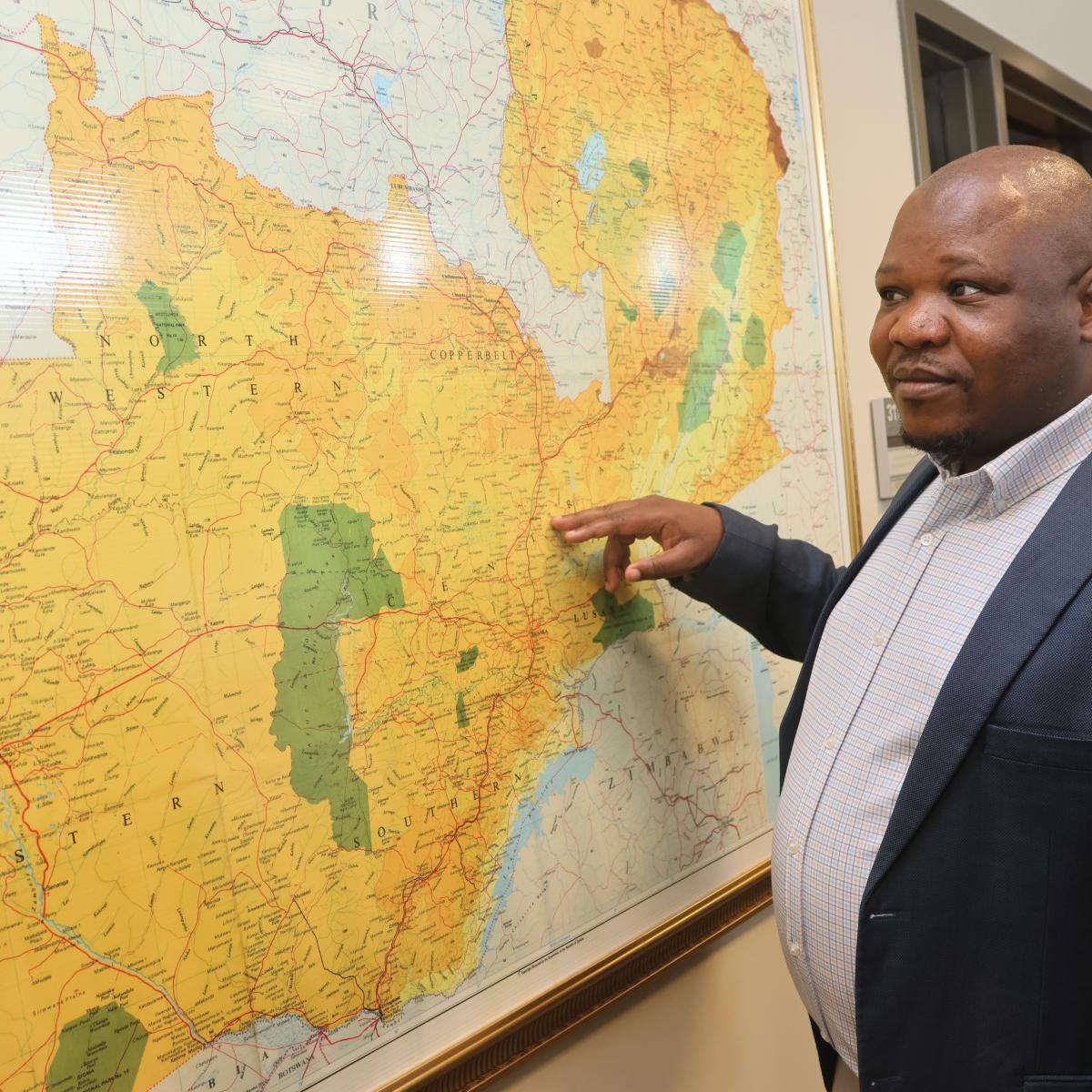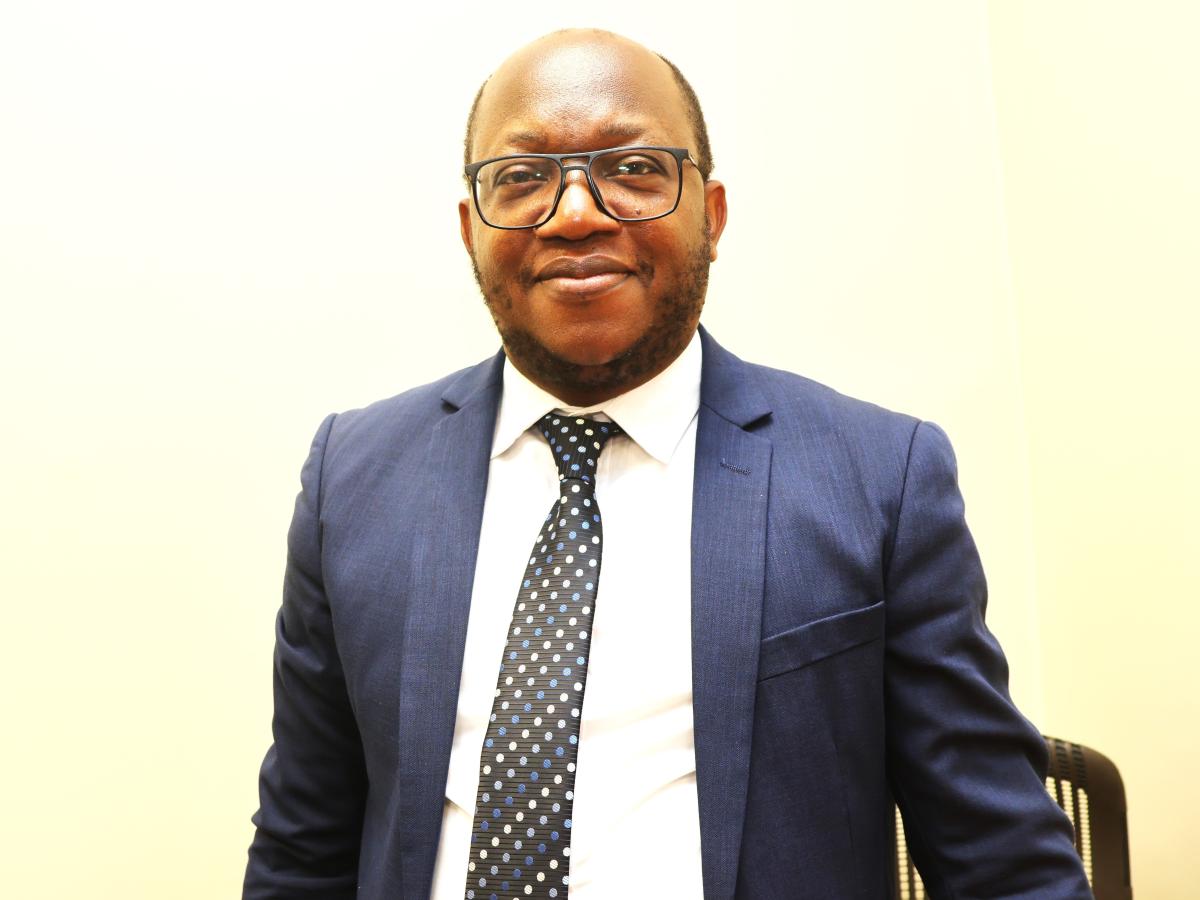World Pharmacist Day, celebrated annually on September 25, is a day to recognize and celebrate the important role that pharmacists play in building healthier communities everywhere.
In Zambia, pharmacists are integral to the healthcare system. Pharmacists are often the first point of contact for health advice and primary health care, and dispense life-saving medicines such as HIV and malaria treatment. Many of these essential medicines are procured by the U.S. Government and provided free of charge to Zambians.
Through USAID, the U.S. government procures $122 million (over three billion kwacha) annually in medicines and health products for the people of Zambia, including HIV medicines, antimalarials, family planning commodities, and TB medicines. These products are provided free of charge to Zambians.
Meet three USAID pharmacists who are working to ensure that the people of Zambia have access to the essential medicines they need.
Rabson Zyambo, Senior Supply Chain Advisor, USAID Zambia


My passion for pharmacy began in my hometown in Lundazi district of Zambia, where access to health services was scarce. I saw pharmacy not just as a profession but as a means to ensure that people received the right medications at the right time.
I became fascinated by the complexities of supply chains—the intricate processes that ensure medicines are sourced, stored, and delivered to those who need them most. I enjoyed roles where I could blend my pharmaceutical knowledge with logistics, leading me to my current position as a Senior Supply Chain Advisor at USAID.
In this role at USAID, my expertise as a pharmacist is crucial. I use my deep understanding of drug formulations, stability, and storage requirements to design and implement supply chain systems that maintain the integrity of medications from production to patient. I thrive on solving complex supply chain challenges, whether it’s coordinating deliveries to remote locations or managing the logistics of cold-chain storage for temperature-sensitive drugs.
For me, pharmacy has always been about more than just dispensing medication; it’s about ensuring equitable access to essential treatments, no matter where people live.
James Simukoko, Technical Advisor, USAID Zambia

As a pharmacist working with USAID in Zambia, I’ve had the incredible opportunity to merge my clinical expertise with global health initiatives to make a significant impact on communities.
I use my expertise as a pharmacist to ensure the effective implementation and management of USAID’s health programs, particularly those related to HIV/AIDS and maternal and child health. My background in pharmaceuticals allows me to provide technical guidance on drug therapies, oversee compliance with health regulations, and optimize treatment protocols. I conduct data quality assessments, monitor program progress, and ensure that health interventions align with best practices and regulatory standards.
I was drawn to pharmacy because of my passion for improving patient outcomes through medication management and healthcare innovation. The ability to directly influence the effectiveness of treatments and contribute to public health initiatives motivated me to pursue a career where I could blend my interest in science with a desire to make a positive impact on individuals’ lives.
Lameck Kachali, Supply Chain Advisor, USAID Zambia


My interest in pharmacy first started when I was very young. Growing up, my mother taught me and my siblings about plants with medicinal properties in case one of us fell ill in the bush. My early interest in the power of medicine is what influenced my decision to pursue a career in pharmacy.
As a Supply Chain Advisor for USAID Zambia, I use my skills as a pharmacist to work effectively with our partners to manage the health commodities that the U.S. government provides to the Government of Zambia. Strong pharmaceutical management is essential for patients to access the health products and medicines they need. I work closely with our partners including the Zambia Medicines Regulatory Authority to strengthen pharmaceutical management in Zambia’s health facilities and I also use my skills as a pharmacist to ensure that medicines and vaccines are safe for patients to use.
Looking back on my career as a pharmacist, I am proud that I have helped Zambia to reach HIV epidemic control through forecasting and quantification (which determine where and when medicines are needed and how much) and the procurement of HIV commodities including HIV prevention methods, HIV testing tools, and HIV treatment.
